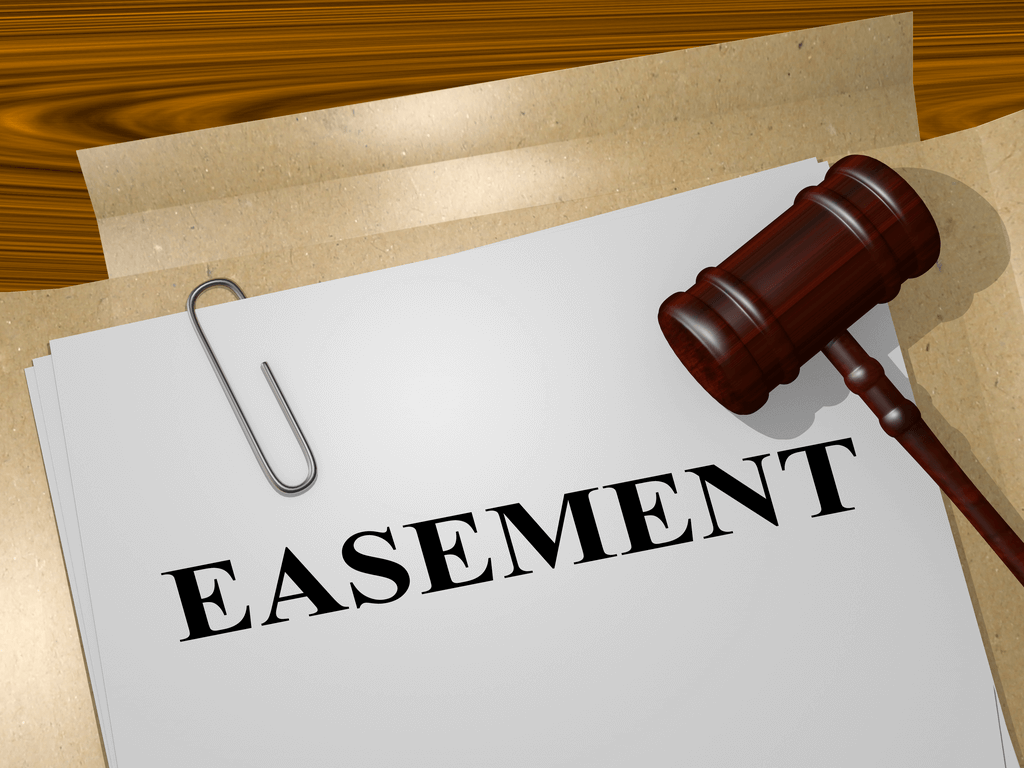Is it Possible to Remove an Easement?

An easement can be a positive thing. It’s typically a nonpossessory property agreement between neighbors or someone and the government to allow another person or entity to legally access another’s property. Usually, this is so one person can get to their own landlocked property. Sometimes this is so someone else can utilize a fence, or get clean water from a stream. You don’t think you need to remove an easement in these situations.
Easements can work because you trust your neighbor to respect your property, but sometimes they take advantage of that. Other times, your neighbor sells their property to someone you can’t trust who will now inherit the easement. The government may also abuse the property rights you’ve given them or force them on you. In these instances, you want to know how to get them removed.
Removing an easement is always difficult, but the type of easement is what tells a real estate lawyer just how difficult it will be. If you’re looking for a way to remove your easement, the real estate attorneys at Mazzoni Valvano Szewczyk & Karam can help. We can help you figure out the best way to remove it.
What are the Ways to Remove an Easement?
There are many different ways for removing an easement, and it depends on what type of easement you have, and/or what it’s being used for.
Quiet the Title
No property is young, but sometimes the easements are old as well. When easements are old, you can “quiet the title” of your property to get rid of them. This involves filing a quiet title action, which re-affirms your real estate property’s dimensions. As long this goes undisputed, your title is quieted, then your land is resurveyed, and thus, replanted.
This strategy can work for removing easements before they become a problem. If you file a quiet title action in the interim between the sales of your neighbor’s property, you can remove an easement while they won’t dispute it. This strategy is typically best for old easements that have not been used in a while.
Get Rid of the Reason for It
This is self-explanatory. If an easement was created so another property owner could access or use something specific, getting rid of it will cease your easement. If your property has an easement to give someone access to a wall, well, or bridge, getting rid of it will cease the easement.
For the government, if the object they have the easement for is no longer in use, the easement can be considered null and void.
Merge the Properties That Use the Easement
This tactic is only for when the easement is between two physically neighboring properties. In this instance, one of the property owners purchases the other property and merges their titles. This creates one large property and eliminates the need for an easement.
Simply purchasing both properties does not get rid of the easement alone. There is a legal process afterward.
Abandon the Easement
This is a risky tactic because it can be perceived as you keeping the person with the easement from using it. If a neighbor or entity loses access to your property because you’re not maintaining it or keeping it accessible, they can lose easement rights. They can’t have access through an easement if there’s nothing to access.
In some instances, you don’t have any responsibility to keep something accessible to someone else, even if they have an easement. In these cases, after a certain amount of time where someone hasn’t used their easement, it’s been abandoned and has expired.
Execute a Release Agreement
This is the most direct way to remove an easement. To do this, you need to communicate with the recipient of the easement, typically through an attorney, to discuss your need and desire to terminate the easement. Together, you can both sign and file a release document that, after being accepted, will dissolve the easement.
Let the Easement Expire
Some easements have an expiration date because they were only needed for a limited time. If you can, being patient and waiting for it to expire can save you a lot of legal trouble. If you’re unsure of when it will expire, or if it will, contact a real estate attorney.
Contact the Real Estate Attorneys at MVSK
Title issues like easements should come up during title searches. Sometimes they’re missed, or they don’t seem like such a big deal. When that happens, many people will proceed to purchase a home with them. Other times, you may make an easement with your neighbor or have one forced on you by the government. Later, you’ll realize that it’s affecting your life in inconvenient ways and it may be time to remove it.
If you need to remove an easement, contact the real estate attorneys at Mazzoni Valvano Szewczyk & Karam. We have the experience and knowledge to help you figure out what’s the best option and how to proceed. Contact us today.

